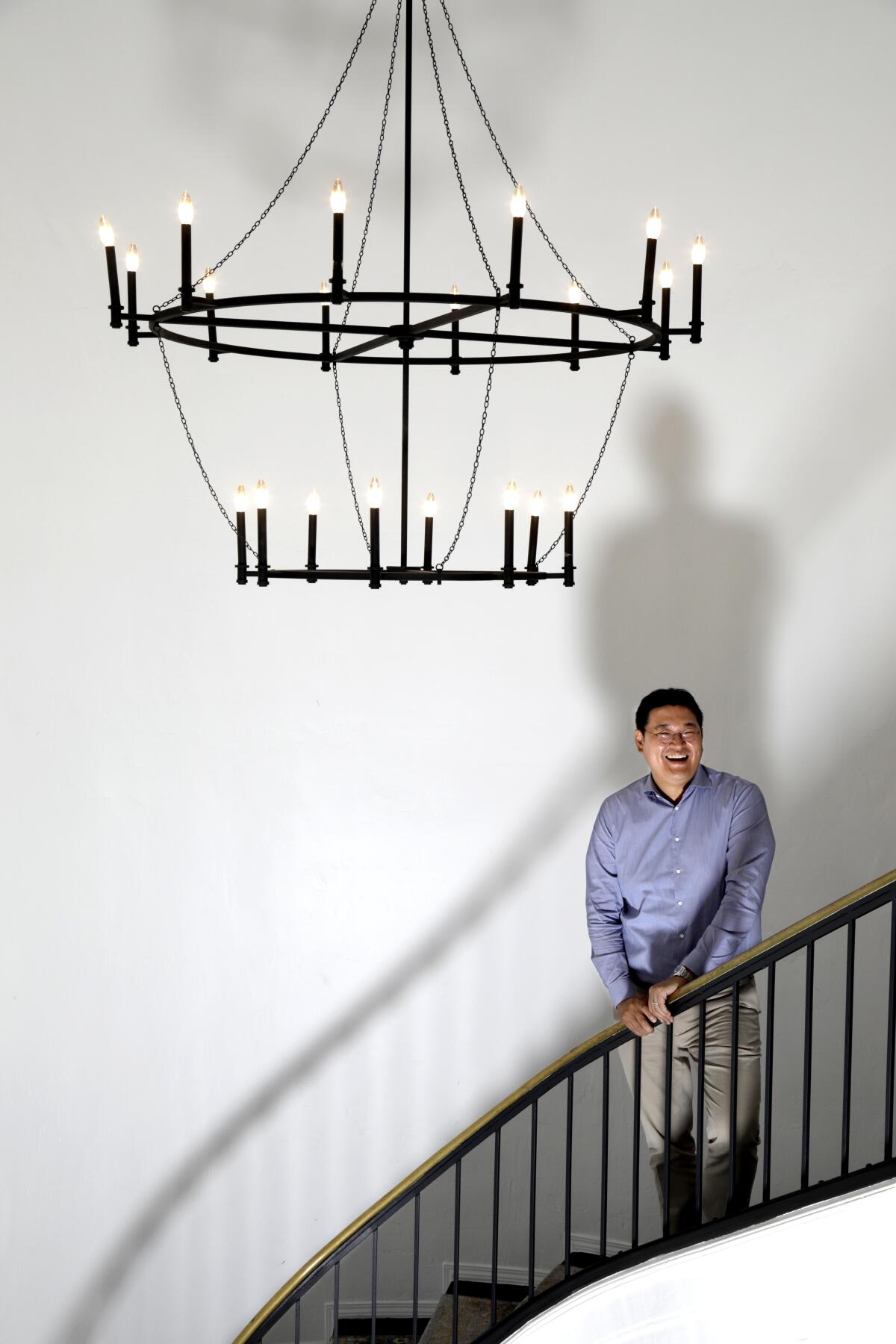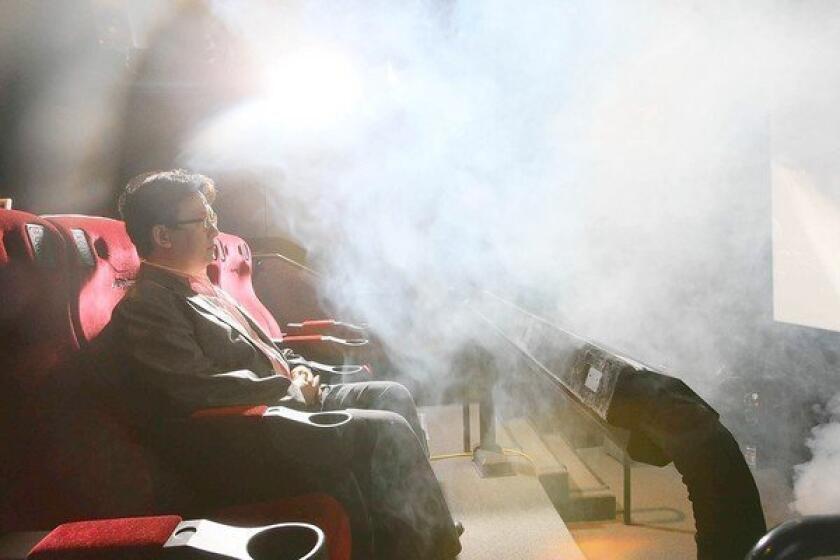South Korea aims to have a bigger footprint in Hollywood. This deal could be a major step

The TV drama “Itaewon Class,” about a young entrepreneur who seeks to avenge his father’s death by taking down his rival at a powerful corporation, has built a loyal global following on Netflix.
But media executive Jeongin Hong believes there is even more runway for the 2020 Korean language series.
Hong, whose company JTBC Studios produces the show, wants to develop an English version of the series with the potential help of wiip — a Hollywood company behind HBO’s “Mare of Easttown” and other acclaimed shows.
Such possible collaboration was one of the driving forces behind JTBC Studios’ decision to acquire a majority stake in the content arm of powerful talent agency CAA.
“There is a great meaning for us entering into the Hollywood production market, producing in English, producing with American or international talents out there to expand our business,” said 36-year-old Hong, senior vice president at JTBC Studios. “There’ll be instant synergy.”
The deal is the latest and among the highest profile forays by a South Korean company into the U.S. entertainment business.
A subsidiary of South Korean entertainment company HYBE in April acquired Scooter Braun’s Ithaca Holdings for $1.05 billion. Seoul-based CJ Entertainment and Merchandising invested in studio Skydance last year, as part of a $275 million strategic funding round with other investors.
Korean-language programs have seen a surge in demand following drama “Parasite” winning best picture at last year’s Academy Awards and “Minari” receiving critical acclaim, with Yuh-Jung Youn being the first Korean performer to win an Oscar for best supporting actress in the film.
Korean-language series and movies have become more widely accessible through streaming services like Netflix, which has invested heavily in such programming. Additionally, several South Korean shows have been successfully adapted to American audiences, including Fox’s singing competition “The Masked Singer” and ABC’s medical drama “The Good Doctor.”
Korean businesses view the U.S. cultural sector as a largely untapped market, said Dal Yong Jin, a professor at Simon Fraser University in British Columbia, Canada, who has cowritten a book on the globalization of Korean culture.
“Korea has penetrated several parts of global society, which is known as the Korean Wave,” Jin wrote in an email. “However, the U.S. market is still marginal for Korea, and therefore, a few cultural firms want to directly produce cultural content in the U.S. The acquisition of wiip by JTBC (Studios) is part of this big picture.”
JTBC Studios was looking to expand into Hollywood when opportunity struck, thanks to an agreement between agencies and the Writers Guild of America. Under the agreement to end a protracted dispute, CAA and other agencies agreed to divest or limit their holdings in production firms.
By month’s end, JTBC Studios will own about 60% of wiip, with CAA and Atwater Capital holding roughly 20% ownership each. Financial terms of the deal were not disclosed.
“I always thought that, you know, we can never be a so-called Hollywood insider,” Hong said. “But this opportunity just came to us.”
CAA says it’s reached a deal with the WGA nearly two years after writers fired their agents over concerns about packaging and affiliated production companies.
Although not widely known in U.S., JTBC Studios is a big deal in South Korea, where it produces numerous TV shows and movies annually and has grown rapidly.
The company, which employs 215 people, reported an operating profit of $12.4 million on revenues of $182 million last year, which were up 28% from a year earlier.
JTBC Studios got a big boost in April 2017 when it signed a multititle licensing deal with Netflix, which also later agreed to co-develop JTBC’s prime-time TV dramas globally.
A rise in demand for Korean content in the U.S. has positioned Rakuten Viki as a go-to streaming site for East Asian television shows and films.
“For the last several years, we have had a wonderful partnership with JTBC, driven by our common goal of telling great stories made in Korea and our members in Korea and around the world have fallen in love with shows like ‘Itaewon Class,’ ‘Run On,’ ‘Sisyphus,’ and ‘Nevertheless,’” said Don Kang, Netflix’s vice president of content (Korea), in a statement.
JoongAng Group began in 1963 as a family business. With Samsung, Hong’s grandfather Jin-Ki Hong co-launched the broadcasting business TBC in 1964, and the newspaper JoongAng Ilbo a year later.
Decades later, Hong’s father, Seok-Hyun Hong, used his contacts with U.S. media executives to expand into magazines, launching Newsweek’s Korea version in 1991 and the Korean edition of Cosmopolitan in 2000 (JoongAng Group separated from Samsung in 1999).
To further diversity, the company acquired the country’s third largest theater chain, Megabox, in 2015.
Hong, then an associate at Goldman Sachs, joined his family’s business in 2015. He now oversees the sales of the content that JTBC Studios produces. Its programs are mainly distributed internationally through streaming services such as Netflix and Chinese streaming platform iQiyi.
Companies like JTBC Studios are increasingly eager to expand production to accommodate the voracious appetite of streaming sites for content, and to compete in a fast-changing market, analysts said.
A new deal structure could have a significant impact on the long-term earnings of show creators.
Hong said he first learned about wiip through Vania Schlogel, founder of private equity firm Atwater Capital, after the two were introduced by a mutual friend. Last year, JTBC Studios became a minority investor, owning just 1.5% of wiip.
Wiip was founded in 2018 by former ABC executive and founder of BBC America Paul Lee and Matteo Perale, a former CAA executive. The company, whose name stems from the acronym “word.idea.imagination.production,” employs 32 people. Wiip was a producer on HBO “Mare of Easttown,” which has been nominated for 16 Emmy Awards, and the Apple TV + series “Dickinson.”
“JTBC Studios are fantastic partners who love the content produced by our studio,” Lee, wiip’s CEO, said in a statement. “We look forward to expanding our businesses and continuing to attract extraordinary talent together.”

Hong recently traveled to Los Angeles to visit wiip’s Hollywood office, meeting with the staff and marveling at the library where producers can sit and read books and collaborate. He noted that in Seoul, JTBC Studios also has books available on shelves too, but some of them are fake, only for decorative purposes.
Wiip was designed to be welcoming environment. It resembles a real home, with an open air patio, a library stocked with books and a large mustard-colored, velvet couch and a living room with artsy light fixtures. “Compared to this office, our office in Seoul looks a lot more like a corporate office,” Hong said.
“It’s a home for producers, and they have to be motivated, they have to feel like home, to come here to discuss how to make a project,” Hong said.
4-D movies: Next big thing for U.S. theaters?
Some investments by South Korean firms in the U.S. have had mixed results.
In 2012, CJ Group set up a lab in Hollywood and marketed 4DX technology that appealed to viewers senses as they watched films, with seats in movie theaters that would rock back and forth during a film’s action scenes. While some venues including Regal LA Live offer 4DX screenings, the technology has not been widely embraced nationwide.
Overcoming cultural differences between American and Korean businesses can also be a challenge.
“They have developed different styles and corporate cultures, and therefore, in order to develop quality products, they must develop mutual interests and good partnerships,” Jin said.
Hong said he is cognizant of making sure wiip retains its culture and that collaborations aren’t forced.
“My job is not to push them to do something together,” he said, “but my job is when they decide to do something together, I’ll make them happen seamlessly with speed.”
More to Read
Inside the business of entertainment
The Wide Shot brings you news, analysis and insights on everything from streaming wars to production — and what it all means for the future.
You may occasionally receive promotional content from the Los Angeles Times.













